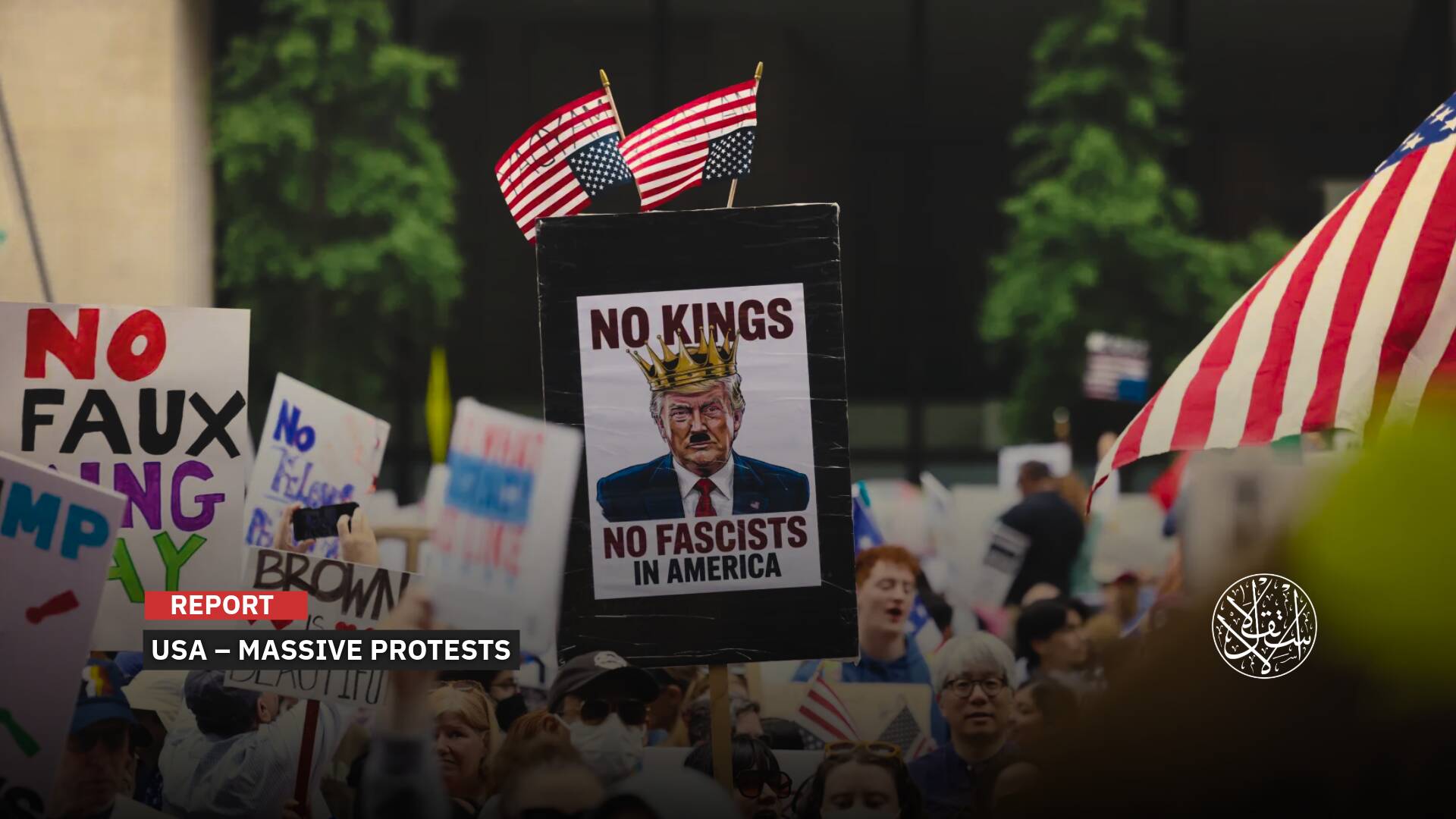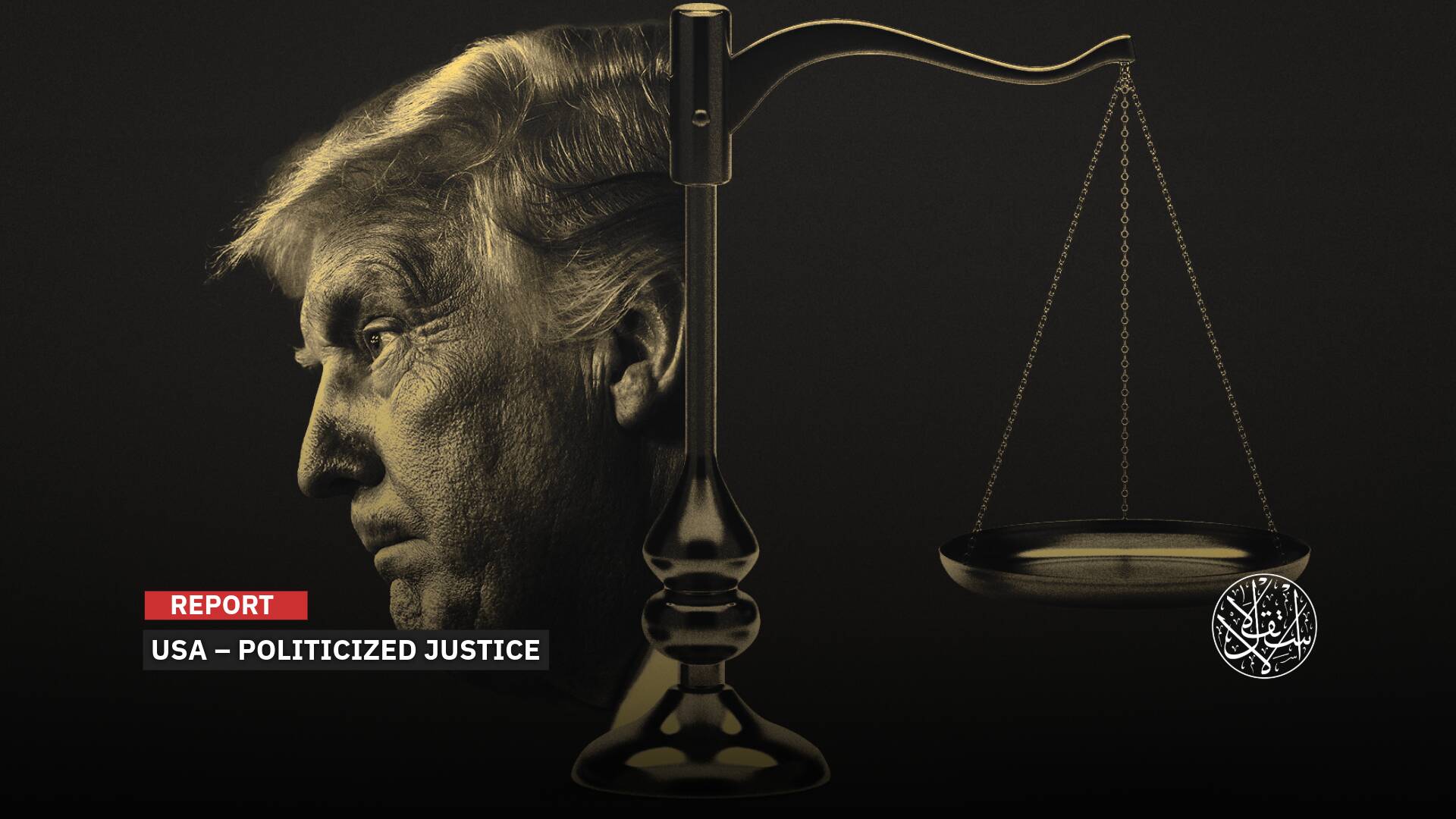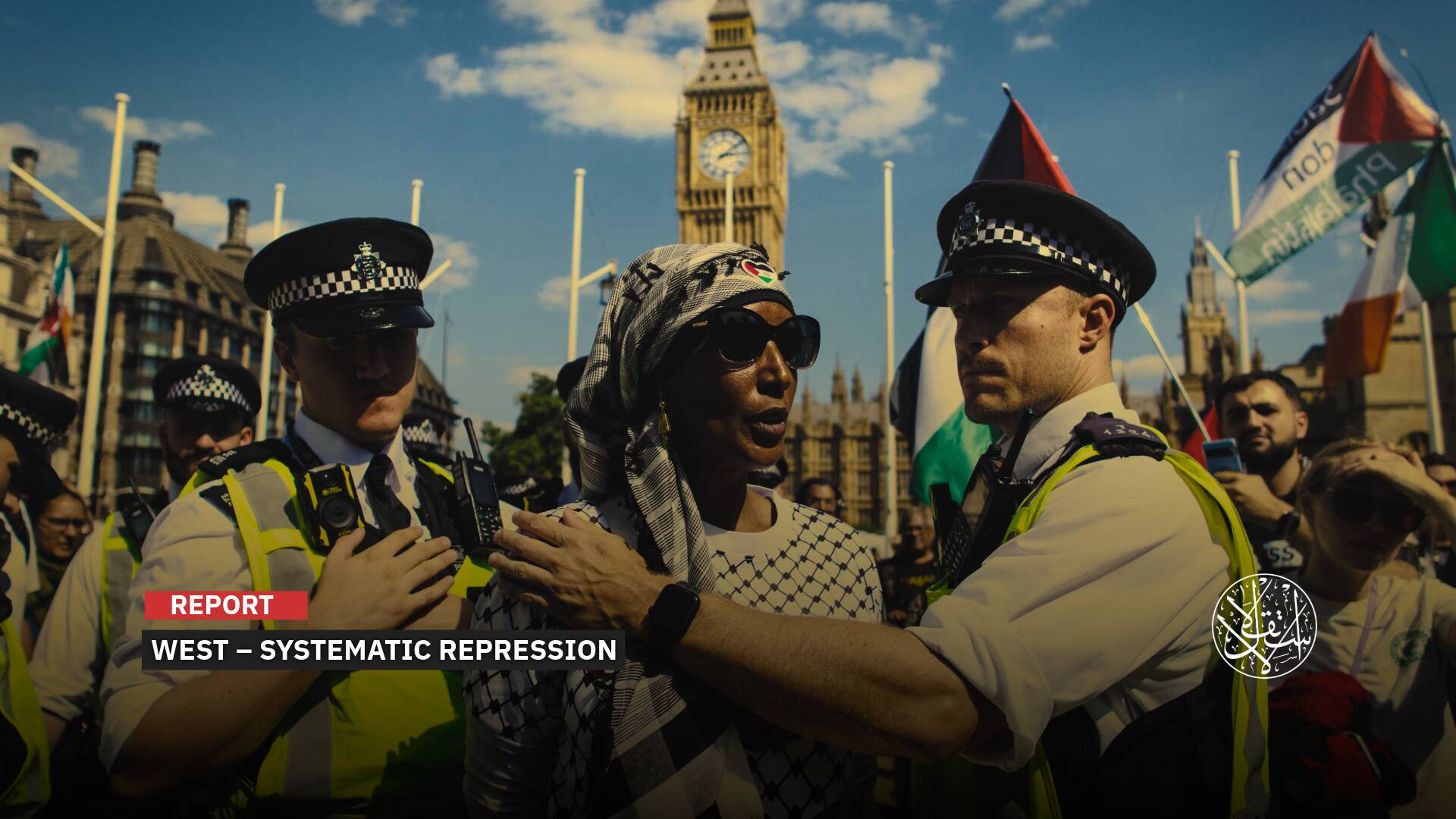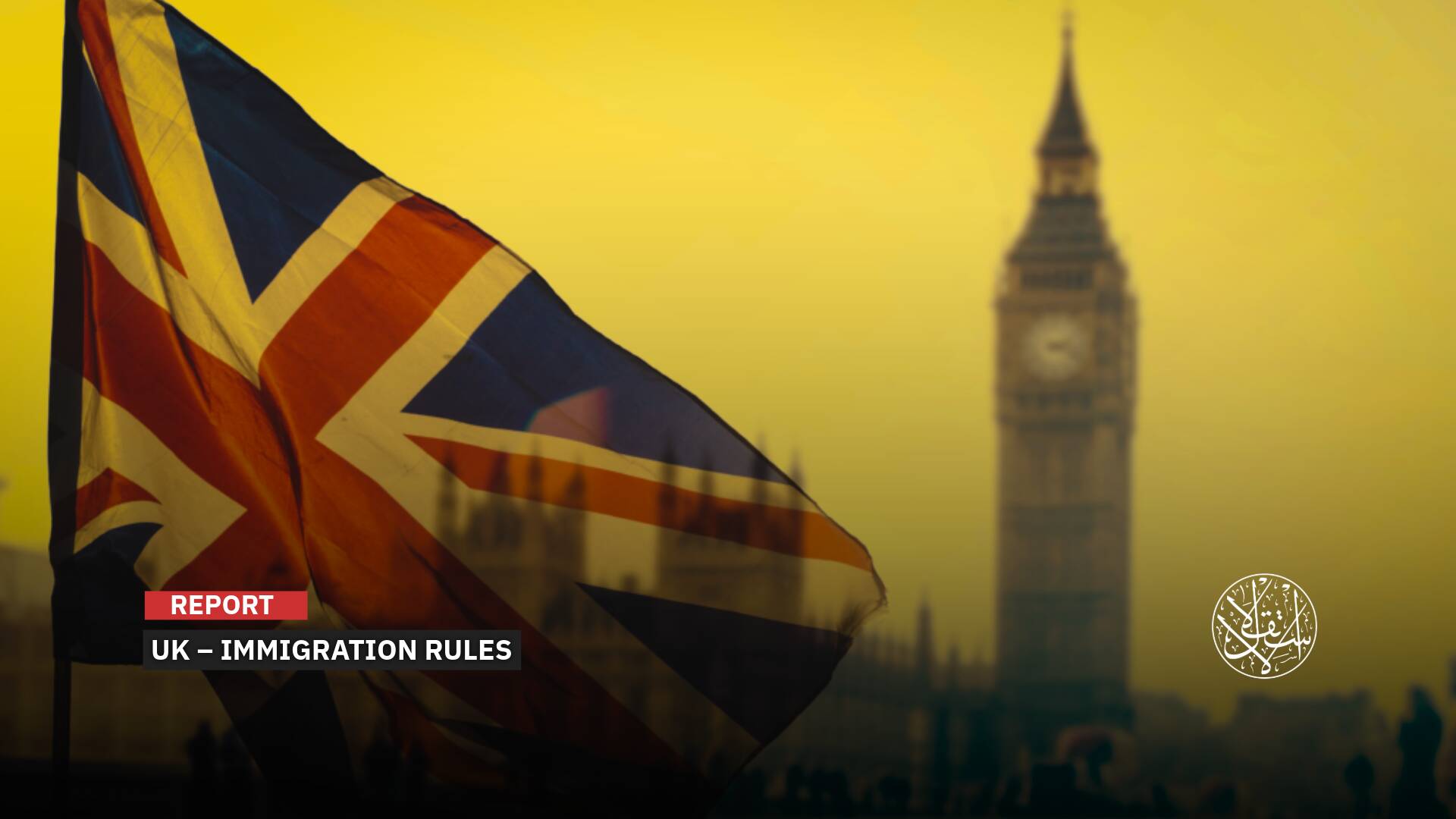How the BDS Movement Succeeded in Its Propaganda and Activities Against 'Israel' in American Universities

At a time when "Israel" is seeking to influence the congressional midterm elections next November and favor its supporters after its popularity declined among the ruling Democratic Party, a survey conducted in American universities showed that half of university students in the United States had been exposed to calls for the Boycott, Divestment and Sanctions (BDS) movement, and more than half of those support those calls.
It is noteworthy that the activity of the BDS Movement began to grow significantly in American universities, where many student organizations adopt its rules in conjunction with the increase in Israeli violations and the escalation of the Occupation's aggression against the Palestinian people.
Important Findings
A survey, the first of its kind conducted by the Israeli Ministry of Foreign Affairs, among American university students showed that 56% of those who have seen calls for the BDS Movement support a boycott of “Israel”.
On September 28, 2022, Yedioth Ahronoth newspaper published the results of the survey, which showed that 49% of American university students are exposed to propaganda and messages issued by BDS.
The newspaper pointed out that students who support a boycott of “Israel” constitute 28% of all college students in the United States.
The survey, which included a random sample of 513 college students, was carried out using the Survey Monkey platform at the invitation of Deputy Secretary of State Idan Roll as part of his efforts to increase support for "Israel" among various audiences in the United States.
The newspaper noted that the survey indicated that 48% of all American students see "Israel" as a source of strength for the United States, compared to 24% who do not see it as such, while 36% of all students said they do not feel sympathy for "Israel."
The survey indicated that support for boycotting "Israel" is increasing significantly among American university students who are interested in political affairs and those over the age of 30, in addition to students of private American universities.
It pointed out that the reason for choosing the Israeli Foreign Ministry to conduct the survey in American universities came in light of its understanding that the boycott movements work mainly in university institutions, as they are an important arena for "Israel."
The newspaper quoted Israeli Deputy Foreign Minister Idan Roll, who initiated the poll, as saying: "The situation is dangerous…American students are thirsty for facts about Israel."
According to Roll, BDS organizations have been successful in influencing student groups on campus.
Perhaps what prompted the Israeli Foreign Ministry to take this step is that the data available to it indicates that American university students are often a strict, progressive, and liberal public, and also criticize “Israel”, even those who sympathize with it, want it to behave with the Palestinians in a different way, and believe that boycotting against it is an appropriate and correct way.
At the same time, Israeli diplomatic circles claim that American university students are exposed to distorted news fueled by the boycott movements against "Israel," especially in times of the campaigns of aggression launched against the Palestinians.

Influential Movement
The BDS Movement, founded in 2005, is an acronym for the three words: Boycott, Divestment, and Sanctions, and defines itself on its website as a Palestinian-led movement that seeks to resist the Israeli Occupation by stopping all forms of dealing with it, and boycotting Israeli companies, institutions, sports, cultural and academic activities.
The movement's objectives are for "Israel" to end its occupation of all Palestinian and Arab lands, remove the security wall, end all forms of apartheid against the Palestinians, recognize the fundamental right to full equality for the Palestinians of the 1948 lands, and the acceptance of "Israel" of the rights of Palestinian refugees to return to their homes from which they were displaced and to recover their property.
Critics assert that accepting such demands will lead to the dissolution of the so-called "State of Israel" and the loss of its identity as a Jewish state.

BDS is supported by federations, unions, parties, institutions of international civil society, popular movements, and others representing millions of members across all continents of the world.
The movement was able to include a number of influential figures in American public opinion, the most famous of which were the academic Angela Davis, the writer Noam Chomsky, and the philosopher Judith Butler, and also managed to dissuade physicist Stephen Hawking from attending a scientific conference that was to be held in "Israel" in June 2013.
The impact of the movement has increased significantly over the past decade thanks to systematic and strategic campaigns; mobilization and advocacy for Palestinian rights have increased within many universities across the United States.
One of the most notable examples of the movement's direct and indirect impact is the June 2021 condemnation decision by the City University of New York (CUNY) union of employees and professors, which described "Israel" as a settler-colonial and apartheid state.
In addition, the board of directors and editors of the New York University Review of Law & Social Change magazine voted to support BDS and a boycott of complicit Israeli academic institutions in particular.
Departments and bodies affiliated with prominent institutions have also issued resolutions to support the BDS Movement, including the student newspaper of Harvard University (The Harvard Crimson), which declared its support for the BDS Movement on April 29, 2021.
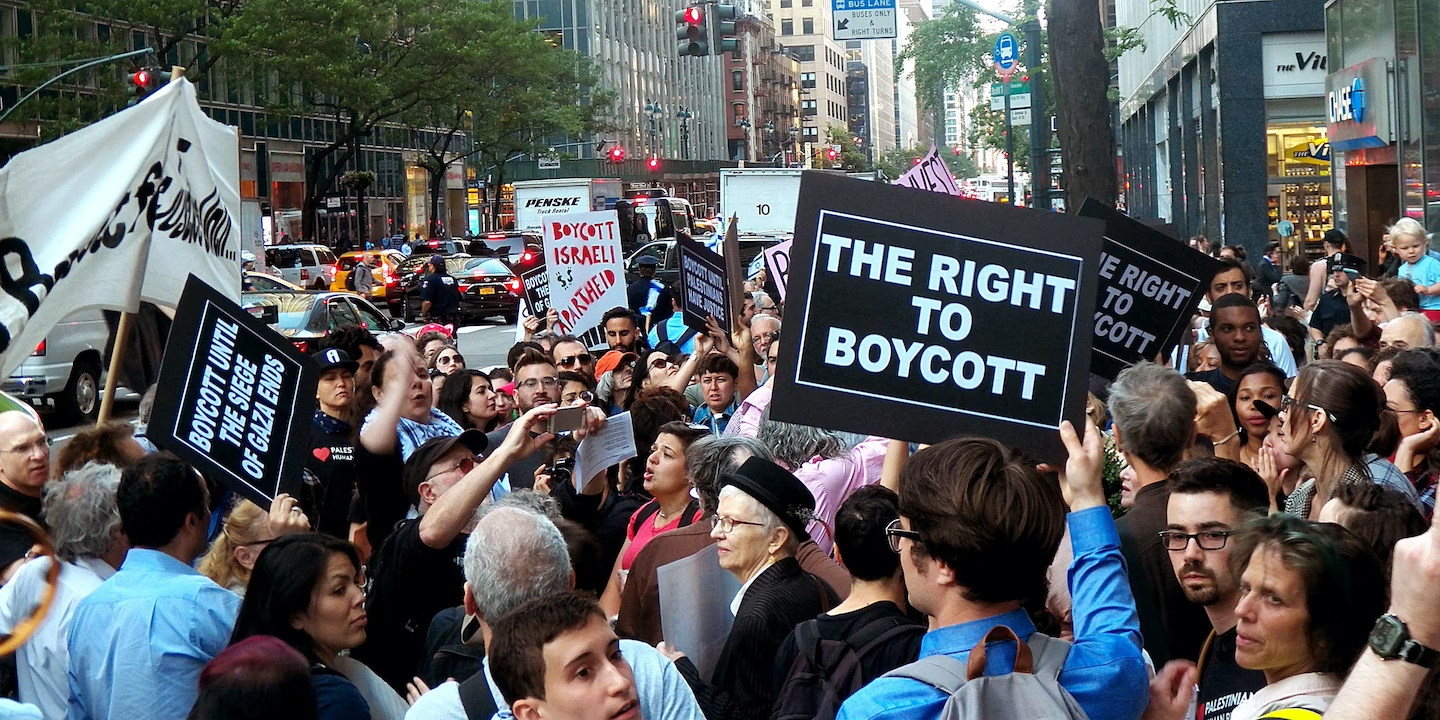
On March 23, 2022, the Middle East Studies Association (MESA), which includes about 3,000 academics from around the world, issued a resolution last March by an overwhelming majority declaring its support for the boycott movement.
In November 2020, San Francisco State University (SFSU) students adopted a resolution calling for the university to cut ties with more than 100 different companies that do business with West Bank settlements.
In 2014, the University of California Student Union (UAW 2865), a union representing 14,000 students working in research and teaching at the University of California, became the first labor union in the United States to endorse the full boycott by a majority vote.
The American DePaul University Student Union followed suit, voting in May 2014 to join the movement, and in February 2015, Northwestern students also voted to join.
In April 2016, the universities of Chicago and New York announced that they had joined the boycott movement and the academic boycott of the Occupation.
In May 2018, the Georgetown University Student Council voted in favor of a decision to boycott companies that cooperate with “Israel”.
In the same week, the Barnard College Student Council voted by a large majority in favor of withdrawing the college's investments from companies benefiting from the Israeli Occupation.

Danger to 'Israel'
Since 2013, "Israel" has considered the BDS Movement a strategic threat to its entire colonial system, as it allocated tens of millions of dollars to damage the reputation of the movement and its activists and to legally pursue them in a desperate attempt to limit its success and spread.
It is noteworthy that BDS was a major factor behind the decline in foreign direct investment in "Israel" by 46% in 2014, compared to 2013, according to a United Nations report.
In June 2016, Israeli Prime Minister Benjamin Netanyahu tasked the Israeli Ministry of Strategic Affairs with combating BDS activities, according to the Israeli newspaper Haaretz.
In 2017, The Times of Israel newspaper published a story about the Israeli government's approval of a plan allocating $72 million to fight the boycott campaign, the largest cash investment from the government in combating the movement's activities.
Tel Aviv also enlisted its allies in the United States to take legal action against campaigns calling for boycotts and enact laws criminalizing boycotts.
In March 2015, two representatives from Illinois, Peter Roskam and Dan Lipinski, proposed a bill that would halt all federal funding for academic institutions participating in the academic boycott of "Israel" in response to the American Studies Association's boycott of Israeli academic institutions.
In addition, allies of "Israel" have sought to pass laws that consider the academic boycott of "Israel" to be anti-Semitic and should be punished.
In any case, at that time, "Israel" succeeded in pressuring some student activists and their universities through its allies, which led—for example—to ban some student organizations supporting Palestinian rights, as happened with the Students for Justice in Palestine (SJP) at Northeastern University in Boston, or court rulings against student activists, as happened in California.

On July 21, 2022, an American senator revealed a plan to impose federal legislation targeting the BDS Movement within the United States after the expansion of its peaceful activities calling for the cessation of relations with Tel Aviv, according to what The Middle East Eye reported.
"There are currently dozens of similar bills in various US states, which require state contractors to sign a pledge not to boycott Israel," it added.
Defenders of freedom of opinion and expression denounced the proposed legislation, which targets the BDS Movement, as contravening the US Constitution, and accused the legislation of trying to stifle the voices of Palestinians and their defenders.
In contrast, a new University of Maryland poll shows that "Americans (52% of Republicans, 82% of Democrats, and 74% of Independents) strongly oppose laws that would criminalize BDS."
A new @UofMaryland poll shows that Americans, across the political spectrum, strongly oppose laws that would criminalise #BDS.
— BDS Movement (@BDSmovement) October 1, 2022
52% of Republicans, 82% of Democrats, and 74% of independents oppose such repressive laws.#Right2BDShttps://t.co/yyzssJVJZj pic.twitter.com/eDn3fyQFYg


